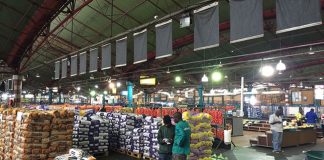Schoonwinkel told Farmer’s Weekly that although the process by which the transport costs were determined had become more transparent, the implementation of the transport differential was flawed. “It is an unacceptable situation. Silos in the Western Cape and irrigation areas such as Hartswater, receive a discount on transport. Maize is transported one way and wheat the other. This means transport costs are shared by the respective silos,” Schoonwinkel explained.
“On the other hand, more than 600 000t of maize is produced in Wesselsbron, Bothaville, Hoopstad and Viljoenskroon. The majority of the maize from these districts is by far earmarked for processing in Kroonstad and not transported more than 150km.
But the transport differential is calculated as to and from Randburg (in Gauteng).”
The transport costs were also determined by the number of tonnages transported by rail compared to road, since rail transport is cheaper. “The majority of grain from Wesselsbron is transported by rail, while from Bothaville, it is transported by road. But the costs from Wesselsbron are higher. It just does not make sense,” Schoonwinkel concluded.











